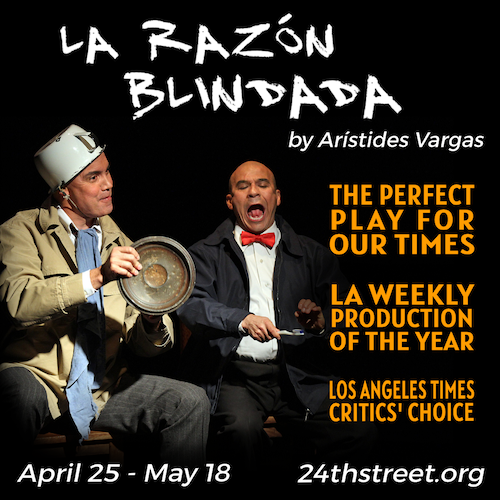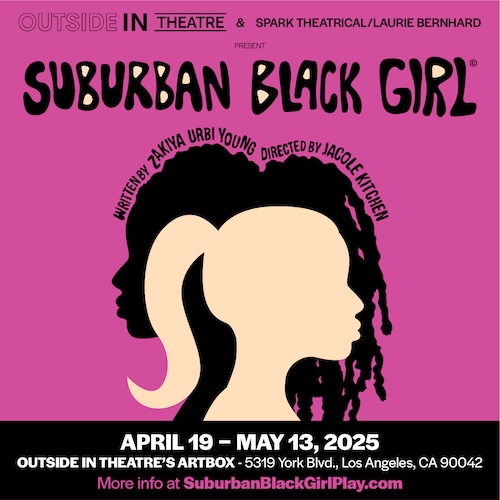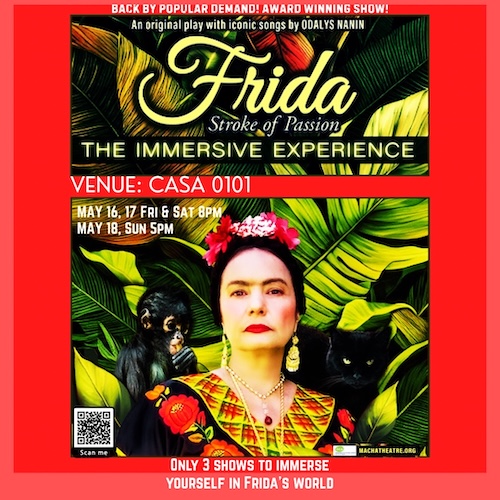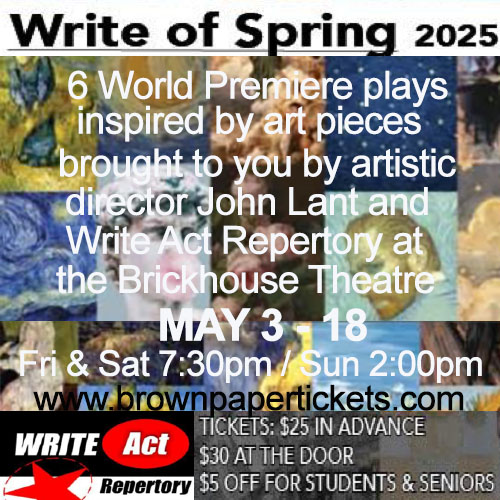Babe
Reviewed by Deborah Klugman
Echo Theatre Company at Atwater Village Theatre
Thru October 24
RECOMMENDED
Babe, Jessica Goldberg’s incisive, skillfully wrought play about sexual harassment (and what should or should not be deemed politically correct), is so titled because, in the course of the narrative, it’s applied, rather casually, to Abigail (Julie Dretzin), one of the playwright’s four exceedingly well-drawn characters.
A woman with a straight black shoulder-length hairdo and the aura of an aging hipster, Abby’s a single middle-aged person who’s dedicated her life to her job as a talent scout for a mega record company. She works in tandem — or is it as an assistant? — to Gus (Sal Viscuso), a social dinosaur with a blunt profane tongue who’s absorbed virtually nothing from the multiple sensitivity training sessions he’s been mandated to attend. An obdurate male chauvinist, he refers to the smart, savvy Abby as “babe,” though she’s neither lover nor spouse. Gus and Abby go back 30 years or more, to their red-hot discovery of a pop singer, Kat Wonder (Wylie Anderson, in one of two roles) who rocketed to the top of the charts before ending her own life. Abby had a special relationship with Kat, who’s often in her thoughts as she wrestles with a cancer diagnosis whose resolution is scarily uncertain.
Change hovers on the horizon when Kaitlin (Anderson), an ambitious and knowledgeable young intern, joins their staff. For years Kaitlin’s tracked the careers of both these producers, and she’s also familiar with the dazzling rise and tragic denouement of the rock icon who put them on the map. Kaitlin’s nervous when we meet her at her first interview, but we’re tipped off to her grit when, notwithstanding her aspirations to work for him, she corrects Gus when he refers to her as a girl, and insists he recognize her as a woman. For the politically obtuse Gus, the moment passes without note; for the rest of us, it’s a sure sign of the tempest to come.
The play proceeds as a series of eight encounters in a story that satisfyingly twists and turns before arriving at its ambiguous, but wholly predictable in its ambiguity, denouement.
One of the strengths of the script is how well Goldberg has rounded out her characters; an obnoxious Gus cares about Abby, determined to make himself available when she needs help. Kaitlin is genuinely admiring of the older woman but, when the time comes, quick to critique and act ruthlessly upon that critique. Grounded and self-possessed in her professional life, Abby quietly mourns her empty nest, never inhabited to begin with.
The performances, both singly and as an ensemble, bear the mark of Field’s insightful, nuanced direction. The impeccably cast Viscuso sports the role of Gus like a tailor-made tux; every moment he’s on stage is as entertaining as his character’s diatribes are appalling. Anderson rises to the double challenge of her dual roles with immense poise and credibility (though for those who haven’t read the script, it’s at first not entirely clear that the specter of Kat is a separate character from Kaitlin — but this is not an issue with the performer, rather a matter to be re-engineered in the writing or direction). As Abby, who listens more than she speaks, Dretzin crafts an understated persona to become the poignant center of the story.
For me, Babe is most timely in depicting the contrast in perspectives between contemporary #MeToo activists with those of women from prior generations. As a boomer – from a generation of women who burned their bras and hiked their skirts — I’m amazed and admiring of younger people quick to call out the shit that I and so many of my peers struggled to deal with, notwithstanding our “liberated” behavior. On the other hand, I am often taken aback when what I perceive as minor politically-incorrect infractions produce the same level of teeth-grinding rage as a violent act like rape.
I mention this by way of an enticement to see the show, which navigates these turbulent, controversial waters with care and precision — an added plus to the fine acting and accomplished direction on display.
Amanda Knehan’s scenic design utilizes a series of colorful paintings to indicate place changes as well as reflect on the high-octane climate that folks in the record business traffic in. Costumer Elena Flores dresses Kaitlin in blazer, torn jeans and black Converse sneakers, apt garb for a woman with record producer ambitions. Hayden Kirschbaum’s lighting functions as it should. Sound design by Alysha Bermudez incorporates songs sung by Bob Dylan, Aretha Franklin and Janis Joplin (memorable music from the 70s rather than the 90s). If you’re sensitive to high volume, though, be prepared because the pre-show music is quite loud.
Echo Theatre Company, Atwater Village Theatre, 3269 Casitas Ave., Atwater. Fri.-Sat., 8 pm, Sun., 4 p.m., Mon., 8 pm; thru Oct. 24. https://EchoTheaterCompany.com Running time: approximately 80 minutes with no intermission.












